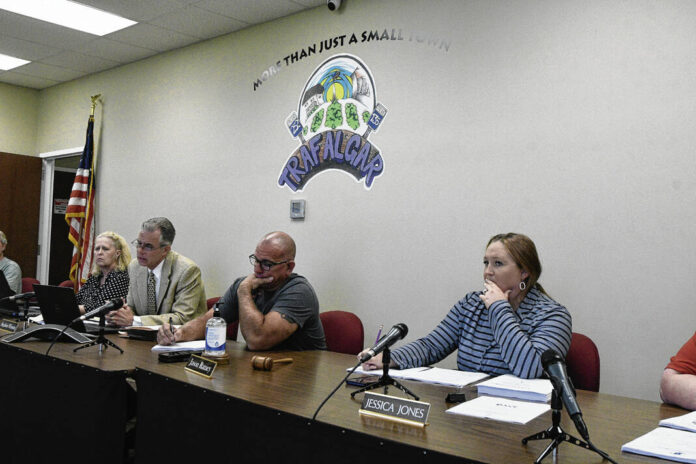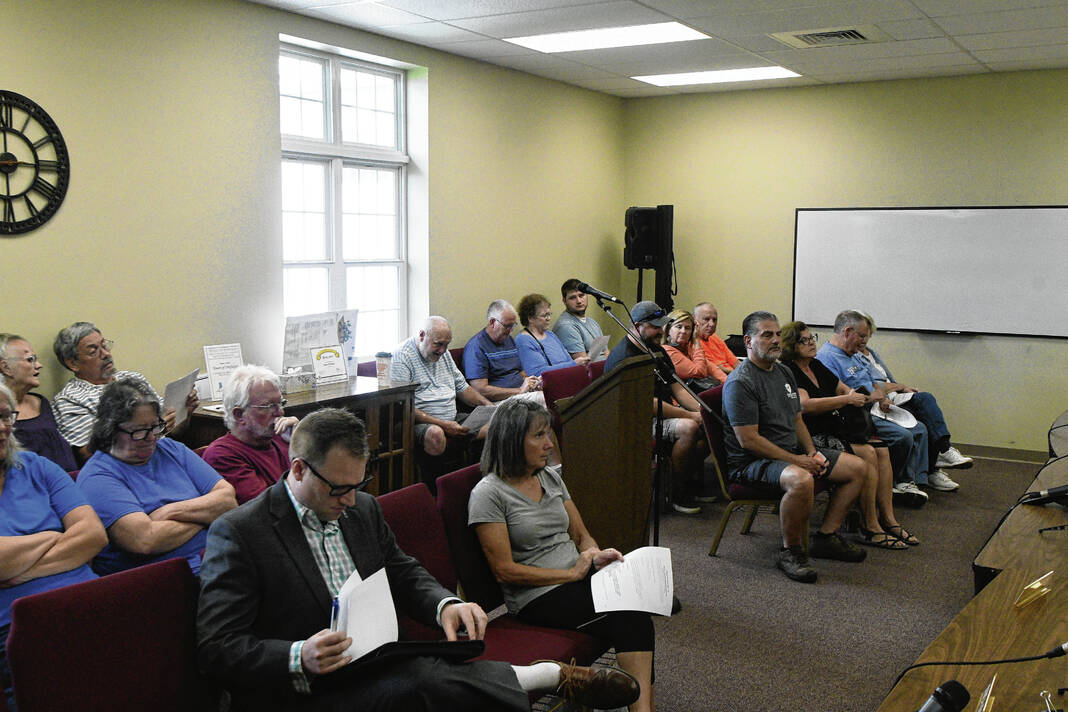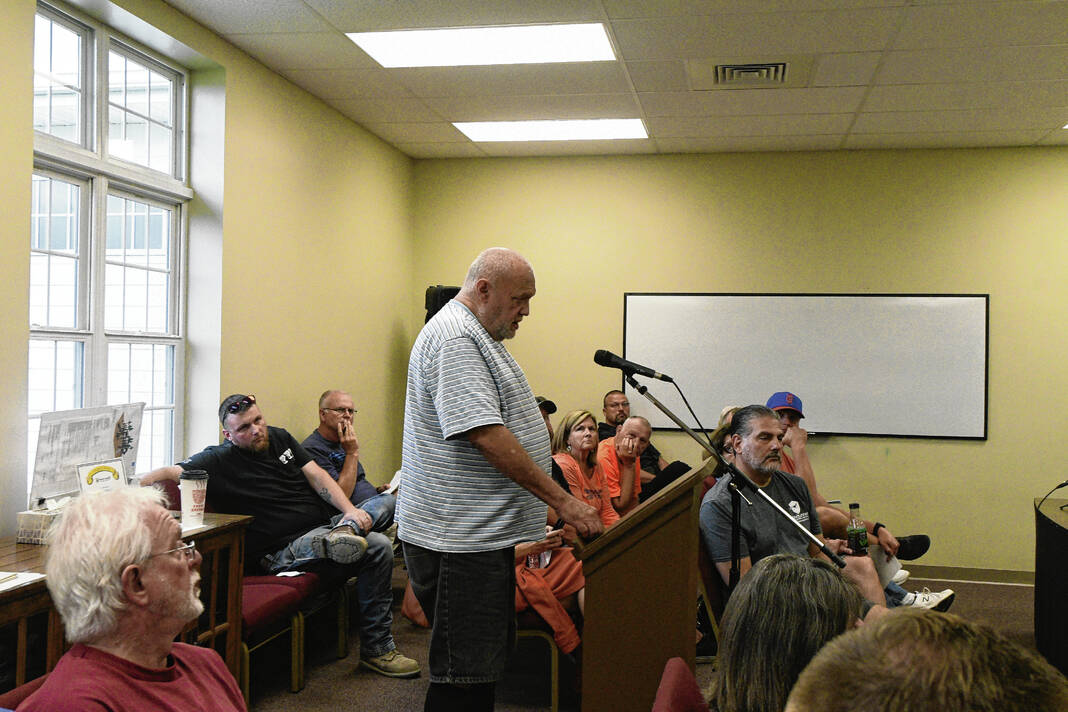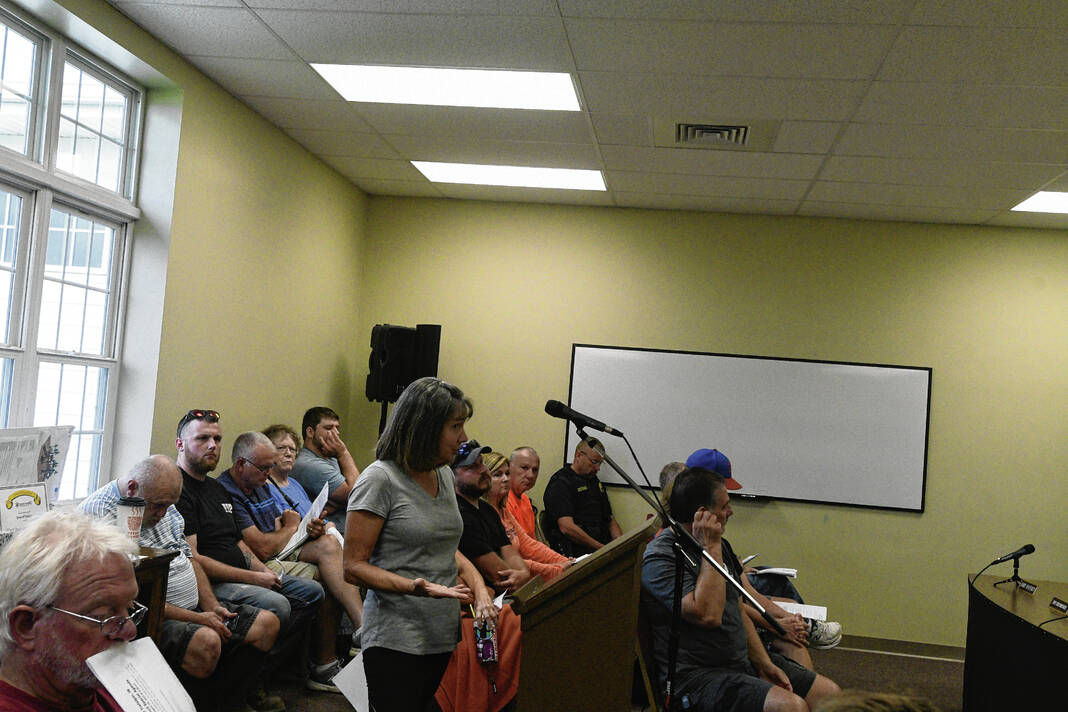Residents packed Trafalgar Town Hall Monday as the town council voted to approve a 43% increase in sewer bills, along with a doubling of sewer connection fees for new homes.
With the growth in the town, including a subdivision approved for 210 homes on land behind the town’s Dollar General, the sewer is at risk of running over capacity. The town has grown by about 67% in the past two decades, town officials say.
About 30 people filled the seats at the town hall, 10 of whom commented and asked questions during the meeting.
The sudden price increase is hard to fathom, said Pamela McQueary, a Trafalgar resident.
“We have lived here for a long time. I moved back here in my 20s and raised my kids here. We have paid for all these sewer problems we had and I’m flabbergasted by the amount of increase at this time,” McQueary said. “Everybody is working two jobs and raising their kids. This increase is unreal.”
The sewer expansion project is expected to cost a total of around $7.2 million. The project would make improvements to expand the wastewater treatment plant from 200,000 gallons per day to 400,000 gallons per day. It would double the town’s sewer capacity, adding 645 equivalent dwelling units, or EDU, to the system. One residence equals one EDU.
In order to pay for it, town officials received two state grants and plan to raise sewer rates to cover the cost of a bond the council needs to take out to cover the cost. Trafalgar was awarded a $2.5 million grant from the State Water Infrastructure Fund, or SWIF, and a $700,000 grant from the Indiana Office of Community & Rural Affairs, or OCRA.
That left about $4.2 million the council must borrow as a bond to pay off over the next 20 years, with interest. A proposed increase in sewer rates would hike rates by about 43% total, in two phases. The first phase, which is the largest rate jump of the two, would begin in October, for bills to be paid in November, and those rates would remain until the construction is complete. The second increase would come after construction is complete, according to town documents.
For the average household, which uses about 4,000 gallons a month on a 5/8 or 3/4 inch meter, the first phase rate change would be about an additional $20 per month, and then around $6 on top of that in the second phase.
People who move into the new homes being built should be responsible for the price increase, since they’re the reason the sewer needs greater capacity, said Kathy Cruz, another resident.
“In my dwelling, my husband travels for work. There’s only one person doing minimal laundry, and my bill goes from $70 to $124 a month and now you’re saying you’re going to increase again. We’re retirement age and going to be on fixed incomes,” Cruz said.
The town’s wastewater plant is aging and has had extensive issues, which is why the renovations are needed, said Logan Axsom, the town’s interim utility superintendent.
“A lot of our plant is 20 years old. We’re replacing our grit chamber, our bar screen has to be replaced. It’s nowhere near where it’s supposed to work and with the capacity going up, we can’t handle the flow,” Axsom said. “We have bearings going out. If we don’t upgrade that, we’ll be a plant that can’t operate and that’s flowing into the street, your homes, the water supply, the creeks, we have to have that upgrade.”
The effects of doing nothing cannot be understated, councilmember Jessica Jones said.
“That has to be done,” Jones said. “We’ll have poop in our yards if this doesn’t get done.”
By increasing the capacity of the sewer to this extent, the town won’t need to come back for more repairs in 10 years, Axsom said.
The council also voted to increase the fee to connect new homes to the sewer system from $1,750 to $3,500. The fee will apply to the 140 new homes being built in the town as well as future developments. The connection fee is comparable to other communities in Johnson County. In Bargersville, the capacity fee is rising to $4,100, in Edinburgh and Franklin, it stands at $2,000, and in New Whiteland, it’s $1,100, councilmember Jason Ramey said.
In the future, the town needs to be more proactive instead of waiting for an emergency situation like this one, Ramey said.
“We were reactive and not proactive enough to be ready for this,” he said.
Both rate increases were passed unanimously by the members who were present. Councilmember Jeff Eisenmenger was not present at the special meeting.









